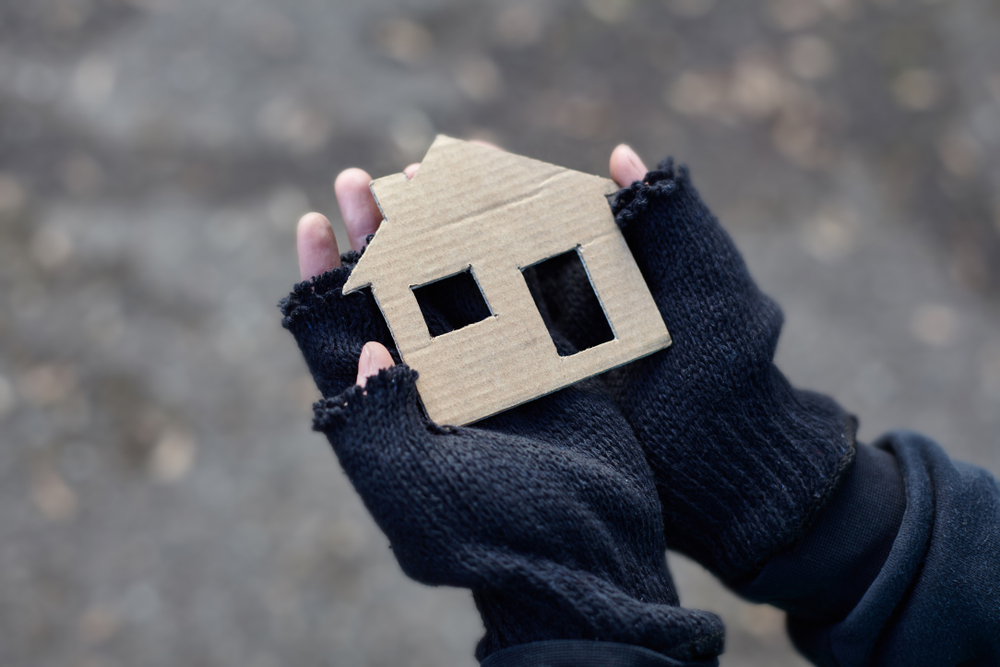When Abrea Ponce, 25, looks back on her childhood, she realizes things could have been different.
The San Diego mother and staff member at the San Diego Regional Task Force on the Homeless spent her critical teen years moving from couch to couch, hotel to hotel to avoid sleeping on the street. The events that led her to become homeless began long before she was a teenager, she believes.
“My mom was in a domestic violence relationship. It caused us to move a lot,” she said. After fleeing from an abusive partner, her mother had a hard time making ends meet.
“It was hard for her to be a single mom,” Ponce said. She was put into foster care at age 9, reunited with her mother at 12, but became homeless at 15 when she was kicked out by her mother for being pregnant.
Without a place to live, she says she engaged in survival sex and eventually was arrested on drug trafficking charges.
So much of the turmoil could have been avoided, she said, “if my mom had had support when I was younger.”
New Report

University of Chicago
Gina Samuels
Gina Samuels is among researchers at the University of Chicago’s Chapin Hall policy research institute who make a similar argument.
“We tend to think about youth homelessness as a youth problem — that they are runaways, that they are troubled, and we just need to get them back to their families,” said Samuels, an associate professor in the School of Social Service Administration at the University of Chicago.
But family disruption, loss and trauma are major causes of youth homelessness, Samuels said.
Samuels is lead author of a June 5 report, Missed Opportunities in Youth Pathways Through Homelessness, based on interviews with homeless youth in five states.
“The most fundamental recommendation that we're making is actually to insert [this finding] into the Runaway and Homeless Youth Act,” she said. “It’s a finding that youth experience trauma and disruption and loss in their families, and that … our services need to be attuned to that as a cause and critical condition of youth homelessness.”
The Runaway and Homeless Youth Act (RHYA), now up for reauthorization in Congress, funds basic shelters, transitional living facilities and street outreach programs.
High incidence of parental death
Interviews with homeless youth showed that 35 percent have had a parent or caregiver die. Almost one-fourths had been homeless with their family. Many have been in foster care. Others have been stigmatized within their family, the report said.
Addressing family disruption and conflict “means making sure that we have evidence-based practices that are trauma specific and attuned … to the large number of young people who actually experience stigma and discrimination within their families,” Samuels said. It is not enough for shelters to simply send kids back home, she said.
The report recommends additional changes in RHYA. While basic shelters have a stay limited to 21 days, the report recommends exceptions in situations including the death or incarceration of a parent and some transitions between educational institutions.
Because homeless young people are quite mobile, cycling from place to place, from a friend’s couch to a shelter, to an abandoned building, for example, it’s important “that we don't drop the ball when they're moving from these different service contexts,” Samuels said.
The report recommends service providers reach out through social media, communicate with other federally-funded programs and establish prevention services in conjunction with other child welfare agencies.

Chapin Hall
Dee Balliet
Dee Balliet, 25, is a founder of the National Youth Forum on Homelessness.
As a teenager he was kicked out of his home after telling his mother he was gay. As a high school student, he slept on the streets.
Balliet advocates for stronger street outreach “to really meet young people where they are,” he said. Youth need LGBTQ-specific services and youth-specific services, he said. The Kaleidoscope Youth Center in Columbus, Ohio was a safe haven for him — and a place where he filled out college applications.
“Without that place I can’t imagine where I would have ended up,” he said.
For Abrea Ponce, it was the comprehensive services she found at San Diego Youth Services STARS (Surviving Together, Achieving and Reaching for Success) program.
“All of those programs are critical to avoiding … trafficking and chronic homelessness,” she said.
